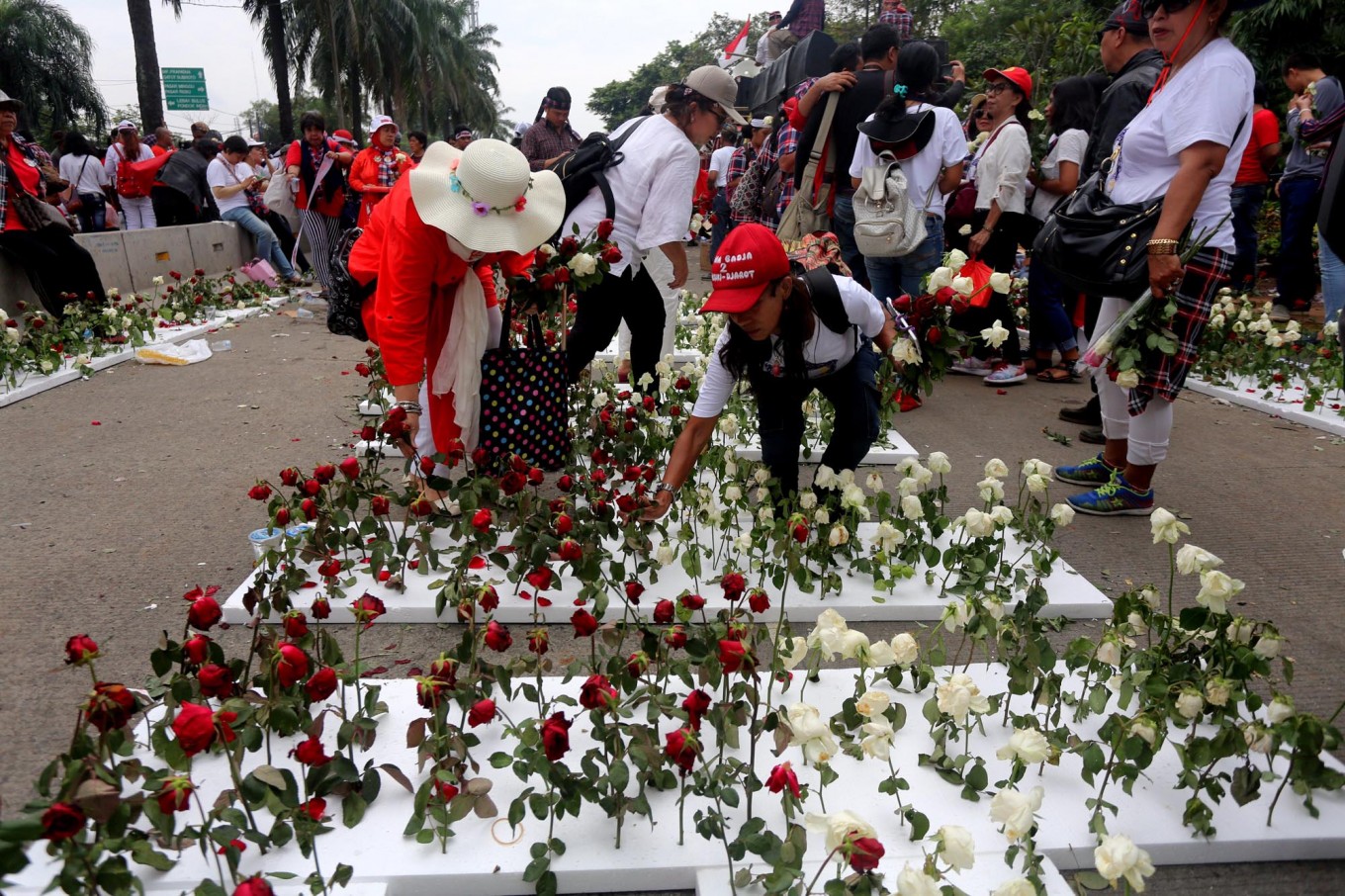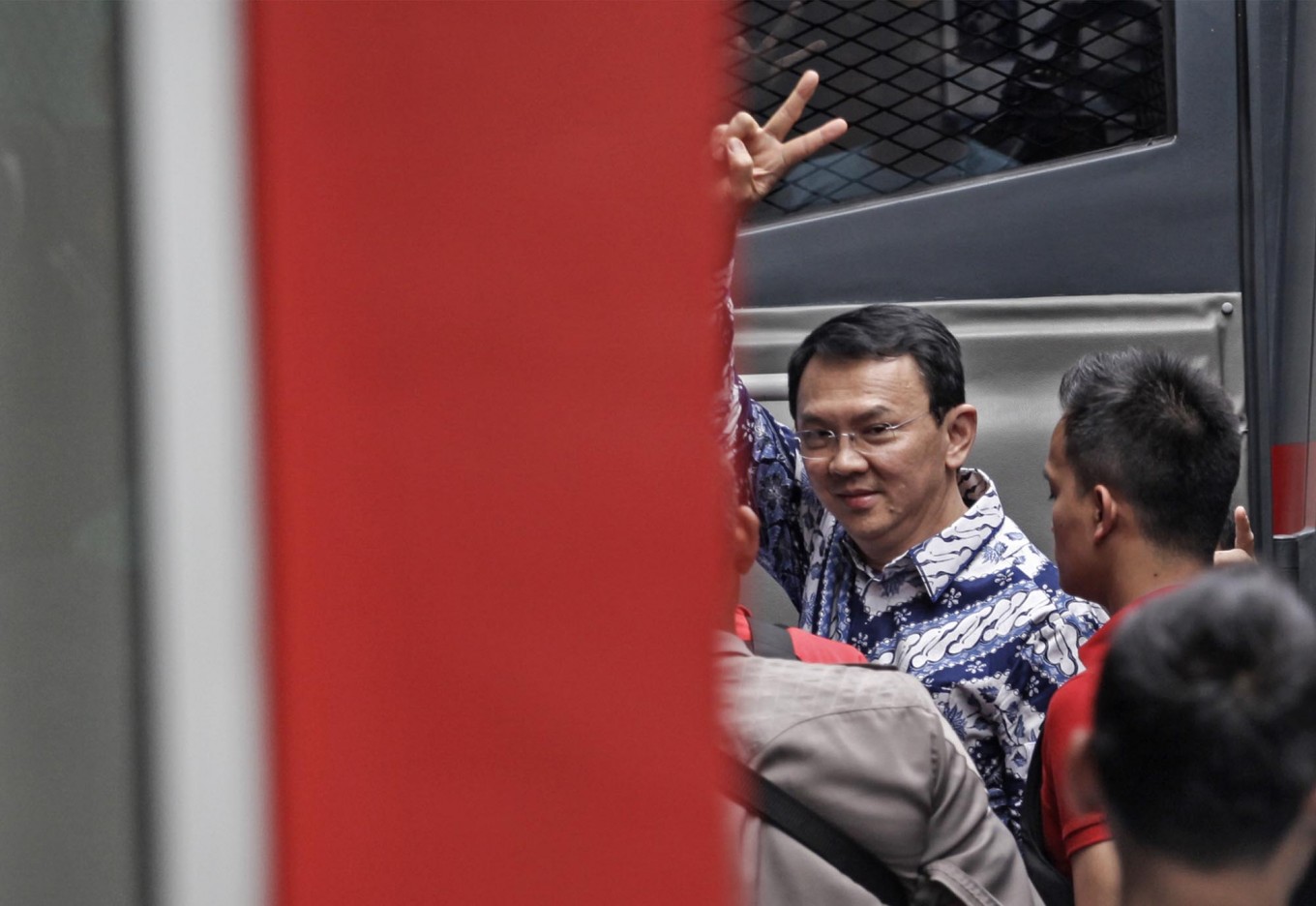Popular Reads
Top Results
Can't find what you're looking for?
View all search resultsPopular Reads
Top Results
Can't find what you're looking for?
View all search resultsAhok verdict irregular: Setara
Setara calls it a trial by the mob, which is actually against the rule of law.
Change text size
Gift Premium Articles
to Anyone
T
he North Jakarta District Court’s decision to sentence Basuki “Ahok” Tjahaja Purnama to two years’ imprisonment is irregular because the sentence is longer than that demanded by prosecutors, rights group Setara Institute has said.
Ahok was initially charged under Article 156a of the Criminal Code (KUHP) on blasphemy and Article 156 of the KUHP on defaming clergymen. Prosecutors, however, later dropped the blasphemy charge and demanded that Ahok be sentenced to two years’ probation and one year in prison if he reoffended.
(Read also: 10,000 balloons for Ahok ahead of verdict announcement)
“Judges are indeed independent but they must base verdicts on facts and evidence. The weak evidence presented by prosecutors should have been able to convince the judges to hand down a lighter sentence than that demanded by prosecutors,” Setara chairman Hendari said in a statement.
“The verdict has proved the blasphemy article is prone to misuse by certain parties,” he added.
Hendari said the judges seemed to have been working under pressure amid the waves of protesters demanding Ahok be imprisoned. "It was a trial by the mob, which is actually against the rule of law."
 Supporters of Basuki "Ahok" Tjahaja Purnama pluck flowers in front of the North Jakarta District Court on Tuesday. Judges at the court sentenced Ahok to two years in prison for blasphemy.(JP/Seto Wardhana.)
Supporters of Basuki "Ahok" Tjahaja Purnama pluck flowers in front of the North Jakarta District Court on Tuesday. Judges at the court sentenced Ahok to two years in prison for blasphemy.(JP/Seto Wardhana.)
He also said the judicial system seemed to be influenced by public pressure.
“In legal principle, if judges hesitate in deciding something, they should choose the most favorable option for the defendants,” Hendardi said. (bbs)










